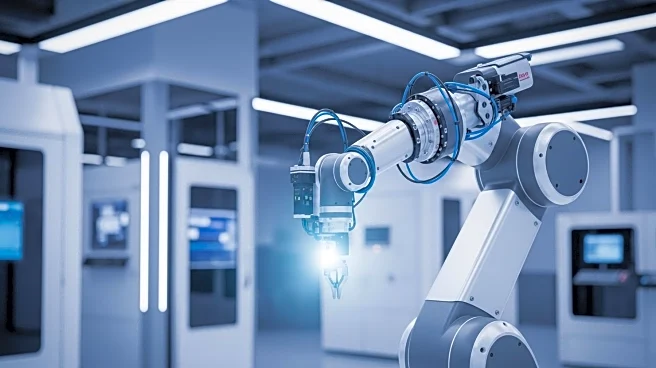What's Happening?
The manufacturing industry is undergoing a transformation driven by AI agents, which are poised to fundamentally change manufacturing execution systems (MES) and operations. These AI agents, unlike traditional systems, can autonomously reason, plan, and execute complex tasks. The transformation is occurring in three waves: classical machine learning, large language models, and AI agents. The latter represents the current frontier, offering capabilities beyond simple instruction following. Manufacturing data platforms, alongside MES and IoT connectivity, form the 'holy trinity of smart manufacturing,' providing the diverse data foundation necessary for AI applications. This shift requires companies to rethink their operations and adopt strategic technology solutions.
Why It's Important?
The introduction of AI agents in manufacturing signifies a major shift towards more autonomous and efficient operations. This evolution can lead to increased productivity, reduced costs, and enhanced decision-making capabilities. As AI agents become more integrated, they can handle complex tasks that were previously managed by human operators, potentially reshaping workforce dynamics and skill requirements. The ability to process and analyze vast amounts of data in real-time can also improve quality control and innovation in product development. Companies that successfully integrate AI agents into their operations may gain a competitive edge, while those that lag may face challenges in maintaining efficiency and market relevance.
What's Next?
Manufacturers will need to invest in AI technologies and data platforms to fully leverage the capabilities of AI agents. This may involve reimagining existing processes and systems to accommodate new technologies. As AI agents become more prevalent, there may be increased collaboration between technology providers and manufacturers to develop tailored solutions. The industry could see a rise in partnerships and investments aimed at enhancing AI capabilities. Stakeholders, including employees, investors, and regulators, will need to adapt to the changes brought about by AI integration, potentially leading to new policies and training programs to support the evolving landscape.










